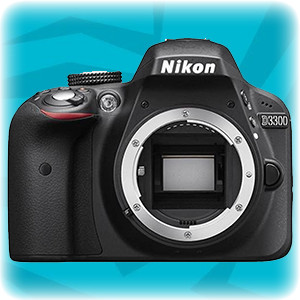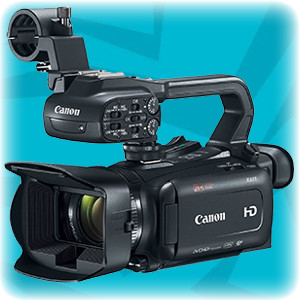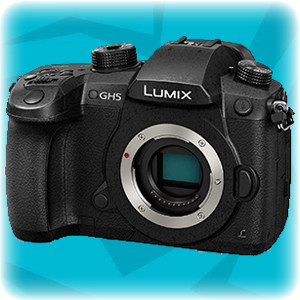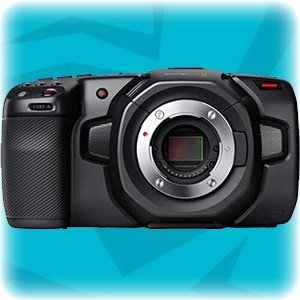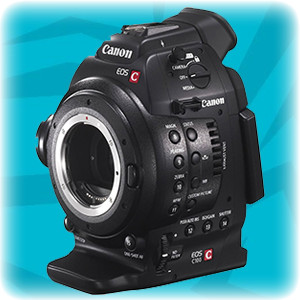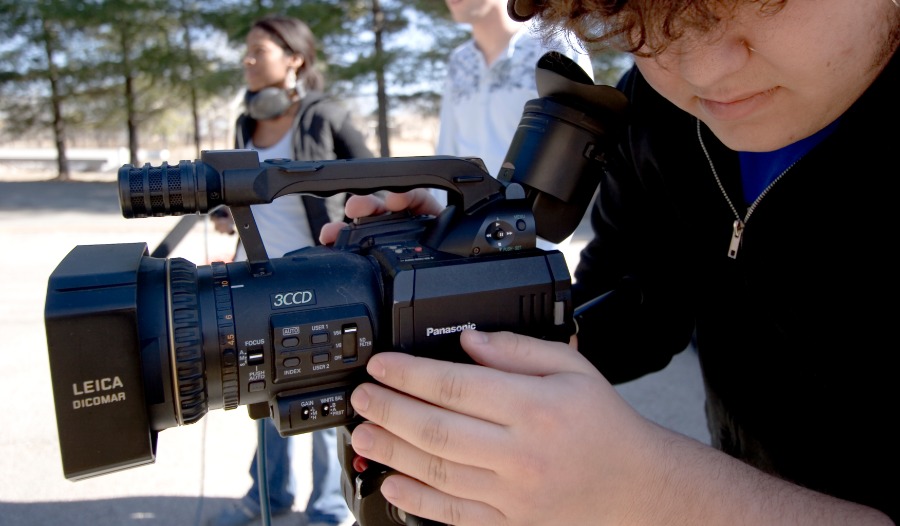
Film students need 3 things: Portability, Quality and Versatility. The first camera that comes to mind with these 3 things is the Blackmagic Design Pocket Cinema Camera. It’s my personal favorite, but there are other models which are also pretty great and have lots of things to offer. In this article, i will talk about 5 different models and what they have to offer.
If you are a film and cinematography student then you probably are pretty enthusiastic about the whole getting the best image thing. However, to get the best image you must spend a lot of money on your camera, lens and other equipment.
Today I will reveal the best cameras for film students, your guide on how to buy the best camera for your needs and so much more. Of course, most of these cameras will be on a certain limited budget, yet will still deliver a good enough performance for your needs. So let’s get on with it.
| Image | Product | Rating | Price |
|---|---|---|---|
|
Best High-End Option
 |
Canon EOS C100
|
10
|
Check Price On Amazon |
|
Best Compact Camera
 |
Blackmagic Design Pocket Cinema Camera 4K
|
9.8
|
Check Price On Amazon |
|
Best Stabilization
 |
Panasonic LUMIX GH5
|
9.6
|
Check Price On Amazon |
|
Best For Indoor
 |
Canon XA11
|
9.5
|
Check Price On Amazon |
|
Best For Beginners
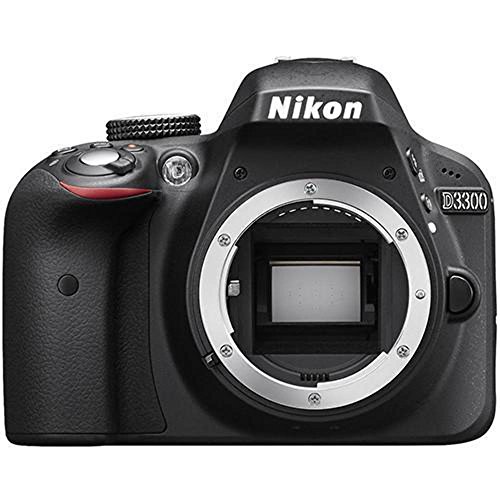 |
Nikon D3300
|
9.2
|
Check Price On Amazon |
Here Are The 5 Best Cameras For Film Students:
5. Nikon D3300
We are going to start with a super affordable but capable entry-level DSLR camera, the Nikon D3300. This camera has tons of lenses available for its body and most of them are pretty cheap, so if you want to start without spending a lot of money this is it.
This entry-level DSLR features a 24.2MP APS-C CMOS sensor with a Full HD video capture capability. It can record up to 60 frames per second but I would recommend the 25 or 24 frames per second mode for better results for your purpose.
It has a Full-time servo AF mode for video shooting and plenty of creative freedom from the controls so you can achieve the best footage for your needs. I should mention that it has a built-in monaural microphone with 20 levels of sensitivity and a 3.5mm stereo jack.
4. Canon XA11
Next up we have an interesting professional-level camcorder camera that will deliver some interesting features, the Canon XA11. This camera might not have interchangeable lenses but it is still pretty good overall, let’s see.
First of all the Canon XA11 has a 1/2.84-inch 1920x1080p CMOS sensor that is capable of recording the footage at 60 frames per second. However, for cinematography, I would recommend the 24 frames per second mode.
This beast also has a 20x optical zoom that equals the zoom range of 27 to 576mm allowing you to capture a wide variety of shots. It has the DIGIC DV 4 image processor, internal microphone and two XLR inputs for professional microphone setups. It also works great in low light conditions, making it a great low light camcorder.
3. Panasonic Lumix GH5
With the GH series, Panasonic has made quite a boom in the camera industry, as one expert said that it blurs the line between stills and video, but the Panasonic Lumix GH5 takes it to another level. It is the best DSLR model for 4K video shooting, comparing pretty closely to cinema cameras.
The Panasonic Lumix GH5 is packed with a 20MP four-thirds sensor with no OLPF. My favorite feature about this camera is the 5-axis in-body image stabilization system with the Dual IS 2 support.
The GH5 has a wide range of lenses you can choose from, and this makes it a very versatile camera for both photographers and videographers.
It records 4K footage with the full width of the sensor from an oversampled 5.1K footage. It can record up to 60 frames per second with the color subsampling at 4.2.2 10-bit color depth output and internal recording. It offers live output to external recorders via HDMI and it has an XLR microphone adapter.
2. Blackmagic Design Pocket Cinema
Coming up as a runner up we have the Blackmagic Design Pocket Cinema Camera 4K, which is a pretty interesting option to freshen things up. While I was very skeptical about the performance of this camera I can truly say that this is marvelous.
One of the things that impressed me the most about this camera was the availability of ports since this camera has a full-sized HDMI, USB-C, mini xl port, two 3.5mm jacks and much more. I can also say that the built-in camera has plenty of quality as well, which was pretty good.
I can say that the controls are pretty good and despite being a small camera offers plenty of creative freedom. Moving on it supports a good range of lenses with the micro four-thirds mount system. Like I said, in the beginning, this camera shoots in 4K and it is pretty sharp detailed and colorful. Top-notch overall.
What is so special about it is that there are a lot of different gimbals for the BMPCC 4k, and a lot of lens choices for blackmagic cameras, which will make your job easier.
1. Canon EOS C100
On top of the list, we have a critically acclaimed camera that has been expensive but since it was released a few years ago, it is still the most popular option for indie filmmakers, the Canon EOS C100. The Canon EOS C100 is a full-blown cinema camera coming in with all the features that a camera in that caliber should have.
First, off I should state that this camera is packed with a nice sensor, not a super large one like a DSLR model, but pretty big compared to its competitors in the same class with a Super 35mm CMOS sensor, delivering all the advantages of the CMOS with a bigger depth of field. It is a 9.84MP one that can shoot Full HD video at 1080p.
It uses the Canon’s EF mount which has a wide range of lenses available for it from the company’s Cinema range. This beast also comes with a carry handle attachment, stereo microphone and two XLR connectors and many more accessories that will make it a perfect fit for a cinematographer.
You Might Also Be Interested In:
Things to Consider Before Buying a Camera as a Film Student
There are several things you should know and consider before buying a camera for your specific purpose. Know what you are looking for, see what they offer, and you will, in the end, make a better a more informed choice, after all, you buy a handful of cameras throughout your whole life. Without further ado, let’s get a deeper look.
Camera Types
You should know that there are several types of cameras out there, each delivering some different qualities that may fit your needs or budget, others not so much. In the end, it will mostly depend on your specific needs, budget, and skillset. So let’s start.
Camcorders
I will start with one of the weaker and cheaper choices out there, camcorders. If you value quality, controls, and performance, these should be on the bottom of your list, however, they deliver excellent ease of use and speed, on top of their super affordable price point. While they won’t allow you to shoot high-quality footage or have control over your results, they are pretty good for starters. But if you are serious about this thing, I wouldn’t recommend them, they are good recording children playing around and a BBQ party but not much more, pretty weak overall.
DSLR and Interchangeable Lens Mirrorless Cameras
These two have their differences, but for video shooting capabilities they are pretty much the same and belong to the same category. First off, you should know that both of these types are first designed for photography mainly but have added features for video shooting. There are some models out there that are designed specifically for shooting high-quality videos. These cameras, in my opinion, are your best pick as a film student, since you can score some amazing deals on these, and they deliver great video shooting performance, Full HD at the very least and if you look deep enough even 4K quality. These cameras are mostly equipped with great autofocus sensors and some of them have excellent image stabilization systems that work rather well. So if you are looking for a balance between performance and price this is your best pick.
Cinema Cameras
In the end, we have a premium choice, cinema cameras. These high-quality cameras are a different animal throughout but have some interesting similarities to DSLRs such as the interchangeable lenses. On top of that, these cameras are the bread and butter of the professional filmmaker, coming in with the complete toolset to deliver a great performance.
They are designed for a cinematographer to be brief and exact. These cameras can’t shoot photographs though, meaning that they are designed for shooting video only. However, you should know that these cameras are pretty expensive overall and will cost you a great deal of money, so be prepared for it.
These can also be used as cameras for documentary-style movie shooting.
Ease of Use
You should check to see if the camera is comfortable to hold on to and can you use it extensively. For example, camcorders are the best in this aspect, as they are extremely easy to hold on to and have simple controls. Then again check this feature in accordance with your skill level, but then again DSLRs or mirrorless interchangeable lens cameras are the best in terms of the balance between ease of use and skill levels, as they deliver some good ergonomics and lightweight bodies, especially mirrorless systems. On the other hand cinema cameras are pretty large most of the time and hard to handle.
Controls
When I say controls I am talking about manual controls here. Since most of the cameras have incorporated modes and automated controls to make things easier for the masses, but for the filmmaker, they are not enough. More controls on a camera equal to more creative freedom. For example, cinema cameras have the most controls that are relevant for a cinematographer, meaning that they will allow you to get the image you need when you need it. On the other and DSLRs and mirrorless systems also have an extensive amount of controls, that are mostly placed for photography, but will deliver a great performance for video as well.
Lens and Availability
You should check out the zoom range and the angle of the lens you are picking. This is especially important for camcorders since you can’t swap out the lens because they are fixed. After this, we can touch on the availability aspect of the lenses, which doesn’t count for camcorders. Different cameras have different lens mounts and based on that you can see how many lenses are available for the camera in question, the more the merrier in this aspect.
If you think that the cameras we mentioned in this list are out of your budget, we recommend you take a look at our budget video camera roundup.
Microphone
While many cameras have built-in microphones, not many of them are good enough, try to check the reviews on how the microphones act in different conditions. Also, make sure to check if the camera in question at least has a headphone jack which will make things easier altogether. However, it is better to have a camera that has a plug for a separate microphone, for more professional applications you will need a camera with three-pin XLR inputs.
Image Stabilization
This is one of the most important aspects of the camera that so many people forget about. The better the image stabilization system of the camera you are planning to buy or have, the more stable your footage will be, it will essentially eliminate the shakiness. While you might be working with a tripod or camera support most of the time, you are going to be using your camera handheld from time to time, you will need these features. It is better to have it and not need it than to need it and not have it.
Frequently Asked Questions
What lenses should I get?
For those that are using interchangeable lens systems for the first time, it is a little hard choosing lens for film making. However, I can always say that a kit lens will do you better than most other options out there. From there you can progress your technique, and see what works for you and what you need next.
Do I need external lights?
To be honest lighting is the most important factor in both photography and cinematography. The lighting will change the scene completely and give a better effect to it. Then again for an absolute beginner, you won't need any of that just yet. But if you are feeling a bit generous and have some funds to throw around you can buy some LED lights which are cheap and can deliver good lighting if you set them correctly.
Verdict
While there might be a million other things you can consider and factor in when it comes to buying cameras for film, you will learn more about that later in your career. If you don’t have any experience, i recommend you consider getting a beginner film camera first, since those are easier to use. On the other hand, if you are on a budget, i recommend you take a look at our article of the best budget cinema cameras.
For a student who has limited funds, these are as good as it comes. So I would recommend checking the price of the camera and factor in what it offers, so you get the best for your money. I know how hard it is to be a student, juggling between projects, classes, student loans, social life, and part-time jobs, so don’t go crazy or overboard with your first camera. Learn to have fun and love the things you do.

Photographer & Writer
I specialize in landscape, street and portrait photography and I have been featured in various galleries and publications. I believe that photography is a way to tell stories!
